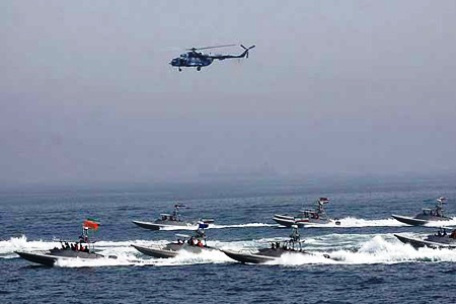The Need for More Talks in Persian Gulf

Last Saturday, Iran began 10 days of naval exercises in the Persian Gulf near the Strait of Hormuz. According to the Iranian Navy commander, the exercises are designed to “display Iran’s defensive and deterrent power.” While he said the drill “will also display the country’s power to control the region as well as testing new missiles, torpedoes and weapons”, the impression across the Persian Gulf is one of anxiety and nervousness for the possibility of closure of the Strait of Hormuz and the consequent discontinuation of oil export from this strategic area.
After the issuance of the last month’s IAEA report on Iran’s nuclear activities, one idea floating around in some Western capitals was to ban Iran’s Central Bank in order to put more pressure on Iran to put aside its nuclear program. In accordance with this scheme, instead of banning the sale of Iranian oil which might adversely affect global oil prices, Iranian oil customers are threatened with sanctions by the U.S. and some European countries.
Since the decision of the U.S. Congress to add the Central Bank to its sanction’s list, rumors have been spread around that some countries in the region are being tempted to replace Iran’s oil in the world market. Last week in Rome, representatives of Industrial countries met to discuss this issue. Surprisingly, some Persian Gulf countries were supposed to participate in that meeting, although the final list of participants was not revealed. These signs were taken seriously by Tehran and even the economic relations between Iran and Dubai was apparently halted for one day.
There is no doubt that the U.S. administration and some European countries are concentrating their activities in this regard on two fronts. One, to exert pressure on the customers of Iranian oil not to import oil from that country and two, to entice Arab oil producing countries to substitute that oil. Bloomberg reported that U.S. Treasury Undersecretary Cohen visited Saudi Arabia and Bahrain last week to discuss “targeting Iran’s energy exports”. It further quoted Persian Gulf diplomats as saying “they have reassured the U.S. and Europe of their willingness to increase production to offset the loss of Iranian oil in Europe.”

